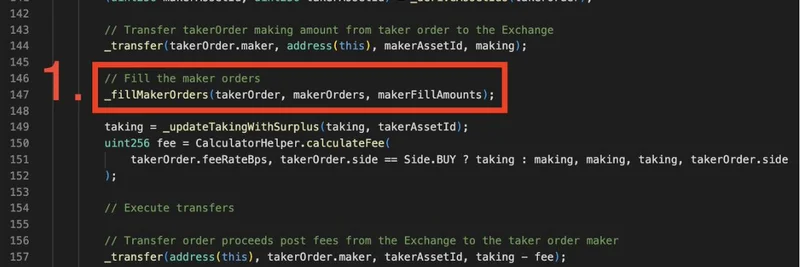Vital
🔍 Planning article content
- The main X Post has no image, so cover field will be omitted.
ik Buterin, the co-founder of Ethereum, just dropped a thought-provoking post on X (formerly Twitter) that's got the crypto community buzzing. In his tweet, he links to a detailed blog article titled "The importance of full-stack openness and verifiability," where he dives deep into why transparency and checkability are crucial across every layer of technology – from apps and operating systems to hardware and even biological systems. As someone who's been in the crypto journalism game for years, I see this as a timely reminder for the meme token world, where trust can make or break a project.
Let's break it down. Vitalik starts by pointing out how the internet isn't just a tool anymore – it's woven into the fabric of daily life. Think about it: emails, instant messages, digital finance (both crypto and traditional), health tracking via smartwatches, and soon, things like government voting or even brain-computer interfaces. These advancements are unstoppable because of their massive benefits, but they come with risks, especially around power imbalances and trust issues. If tech is closed off and unverifiable, it leads to problems like backdoors, hacks, or unequal access, forcing us to rely on "who built this" instead of the tech itself.
In the health section, Vitalik uses the COVID-19 vaccine rollout as an example. Wealthier countries got vaccines first due to proprietary manufacturing, creating huge disparities. Plus, the lack of transparency about risks fueled massive mistrust. He contrasts this with open projects like the Balvi-funded PopVax, which are cheaper, more accessible, and easier to verify for safety. Extending this to personal health data from wearables, he warns about the dangers of proprietary systems – think data breaches leading to blackmail or worse. For meme tokens, this hits home: many projects launch with opaque teams or hidden mechanics, leading to rugs (when devs pull the rug out and run with funds). Embracing openness, like public smart contracts and doxxed (identity-revealed) teams, could build real community trust and reduce scams.
Moving to personal and commercial digital tech, Vitalik compares clunky paper-based processes to speedy blockchain transactions. Crypto's decentralization has pushed innovations like multisig wallets (requiring multiple signatures for security) and hardware wallets to combat hacks. But he stresses that hardware itself needs to be verifiable to avoid hidden vulnerabilities, like those in closed-source chips. In the meme space, this means not just relying on blockchain's openness but ensuring the tools around it – like wallets or DEXs (decentralized exchanges) – are auditable. Remember how some meme coins get hit by exploits? Verifiable code could prevent that, making the ecosystem safer for everyone.
Vitalik doesn't stop there; he touches on digital civic tech, like electronic voting, where "black box" systems breed skepticism. Proprietary setups hinder innovation in governance, such as quadratic voting (a system where votes scale quadratically with cost to balance influence). For meme tokens, which often have DAOs (decentralized autonomous organizations) for community decisions, this underscores the need for transparent voting mechanisms to avoid manipulation.
He also covers public monitoring tech, AI, hardware, and bio layers. In AI, open models prevent hidden backdoors, while verifiable hardware ensures chips aren't tampered with. For bio, like gene therapies, openness democratizes access and verification. Tying back to memes, many tokens start as jokes but evolve into communities with real utility. Projects that prioritize open-source tools and verifiable claims (e.g., fair launches without pre-mines) stand out in a sea of hype.
Overall, Vitalik's message is clear: in a world where tech controls more of our lives, full-stack openness and verifiability aren't luxuries – they're necessities to avoid dystopian outcomes. For meme token enthusiasts and builders, this is a call to action. By adopting these principles, we can foster stronger, more resilient communities. Check out the full blog here to dive deeper, and let's discuss in the comments: How can meme projects implement more verifiability today?
Key Takeaways for Meme Token Creators
- Transparent Launches: Use open-source contracts and third-party audits to build trust from day one.
- Community Verification: Encourage users to verify tokenomics (like supply and distribution) independently.
- Hardware and Tool Security: Promote use of open hardware wallets to protect against broader stack vulnerabilities.
- Avoiding Power Imbalances: Decentralize decision-making to prevent any single entity from controlling the project.
As the meme token landscape evolves, staying ahead means embracing the openness that blockchain was built on. What do you think – is your favorite meme project verifiable enough?


